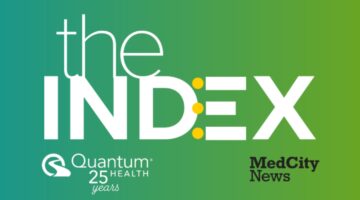 Golden Seeds has led a $2 million Series A round for digital health company Constant Therapy to expand indications for its brain therapy app beyond stroke rehabilitation and therapy for traumatic brain injury to indications such as Alzheimer’s disease. The funding will be used to support scientific research, marketing and development.
Golden Seeds has led a $2 million Series A round for digital health company Constant Therapy to expand indications for its brain therapy app beyond stroke rehabilitation and therapy for traumatic brain injury to indications such as Alzheimer’s disease. The funding will be used to support scientific research, marketing and development.
Kapor Capital, Launchpad Venture Group, Pond Capital and Community Health Network of Connecticut also took part in the round. In a phone interview with Keith Cooper, who joined the company last spring, he sought to draw distinctions between its approach and the likes of Luminosity, which has come under Federal Trade Commission scrutiny over marketing claims.
The company’s speech and cognitive therapy approach is based on aphasia research from Boston University led by Cognitive Therapy Co-founder and Scientific Adviser Dr. Swathi Kiran. Its NeuroPerformance Engine is an advanced analytics engine, which analyzes patient performance and automatically customizes their therapy program for their specific needs.

Growing Interest in Pharmacy Spend, GLP-1 drugs, AI and Navigation Platforms
The 2024 Benefit Consultant Sentiment Index published by MedCity News and sponsored by Quantum Health, now in its second year, is based on a survey of more than 100 seasoned healthcare benefits consultants who represent a cross-section of employer size. A few shared their impressions of some of the report findings.
Cooper said thousands of clinicians use its product as well as people beyond clinical settings.
Cooper noted that a 50 person study to evaluate the Constant Therapy app for people with early onset Alzheimer’s disease is underway at the Veterans Administration in Boston.
“The more data we get, the more patients that come through the product, the better we are and what we do.”
Since I profiled Constant Therapy as one of the participants of the AARP Health Innovation @50 Tech Expo, it has expanded its exercises from 15,000 to 60,000 covering 65 science-based therapies.

Integrated Enrollment Platforms and Consumer Assistance Centers: The Strongest Advantage for State-Based Exchanges
In the ever-evolving landscape of state-based health insurance exchanges, the convergence of technology and customer service is reshaping how these exchanges operate. The increasing advent of automation and artificial intelligence (AI) is rapidly dismantling the traditional business model that relies on the siloing of technology and customer service centers.
“We have ramped up quite a bit and our platform allows for three different cognitive functions at five different levels of difficulty,” he said.
“This product makes the workflow of the clinician much easier,” Cooper said. “It is much more engaging , it allows advancing in difficulty easier” so physicians can easily track performance. “Data visualization shows where the person is today and where they have been.”
He added, “We don’t integrate into electronic health records today but data can be easily extracted and fit into these reports.” In addition to Alzheimer’s disease, Cooper said the company will investigate other conditions for the app such as epilepsy and post traumatic stress disorder.








